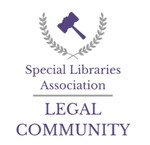Biography
Sarah Lin is currently the Senior Information & Content Architect at the NoSQL database software company MongoDB. Prior to joining MongoDB, she managed the Enterprise Information Management team at Posit (formerly RStudio), a data science software company. She has previously been a bindery clerk, a serials librarian, an indexer, a technical services librarian and a content manager in academic, medical, legal and corporate libraries. Sarah believes that data literacy is the key to the future and that librarians would do well to learn programming and data science skills in order to better serve their patrons, colleagues, and careers.
Interests
- Information Architecture
- Findability
- Metadata
Education
-
MS in Library & Information Science, 2006
University of Illinois at Urbana-Champaign
-
BA in African/African-American Studies & Anthropology, 2003
University of Chicago





